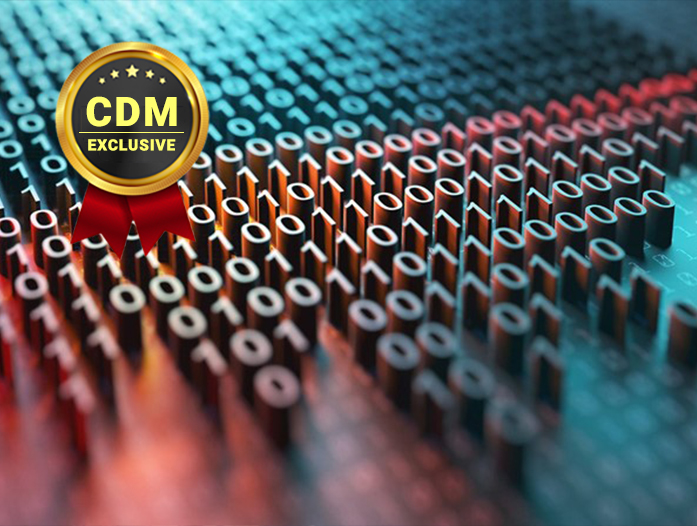By Dr. Dr. Torsten Saab, Senior Engineering Fellow, Raytheon
that much Internet Crime Report 2020 It includes information on 791,790 suspected Internet crime reports, an increase of more than 300,000 over 2019, and over $4.2 billion in reported losses. The industries most hacked include government, retail, and technology. This makes cyberattacks very lucrative as they are known to possess a high level of personally identifiable information.
October 2021, White House Office of Science and Technology Policy (OSTP) convened industry stakeholders across the country to discuss how quantum computers and quantum sensors will benefit American society. Quantum technology, with its many potentials, also poses unique risks to businesses, governments and individuals around the world. In cybersecurity threats related to quantum computing, it is far more important to assume that a breach has already occurred and use a zero-trust-based approach.
Quantum technology and the potential of zero trust
A Quantum Day, or “Q-Day,” is coming sooner than we would like in 5-10 years, and the day quantum computers will reliably use the superimposing power of qubits (i.e. bits of information that can assume multiple states). indicates. once) compute the code required to break the asymmetric encryption. In other words, the arrival of Q-Day may depend on a zero-trust strategy as countries work to prepare themselves for the cyber risks that will inevitably accompany these computing advances. We can no longer have this ‘performance moat’ mindset. Here we are overly focused on defending the perimeter, believing that everyone and everything already in our network belongs to it. We must assume that the bad guys are already on the inside, accessing our data and using a “collect now, decrypt later” strategy.
Zero Trust teaches important security concepts and ideas such as:
- “Never believe, always check”
- “You’re Infringed” Mindset
- Replacing Traditional Perimeter-Based Security
- Introduction to micro-segmentation and multi-factor authentication
- Integrate situational analysis into IT resource access decision-making processes
action plan overview
In response to the challenges of Zero Trust, Raytheon Intelligence & Space (RI&S) provides the expertise and flexible solutions to rapidly develop and implement a forward-looking Zero Trust strategy that best suits your organization. For example, the highly scalable and scalable Zero Trust security platform called REDPro ZTX (short for Raytheon Enterprise Data Protection with Zero Trust Extended) monitors users, devices, networks, workloads and data in real time. Enables plug-and-play multivendor zero trust solutions. Enforce least-privilege access. Consistently check access requests. Facilitates real-time, multi-level cyber response.
An effective and comprehensive zero trust solution should seamlessly provide multi-level zero trust monitoring and policy enforcement at the edge, on-premises and in the cloud. RI&S’s REDPro ZTX solution goes a step further by combining cross-platform zero trust security with cyber resiliency. Cyber resilience adds important security features such as independent hardware and software attestation, self-healing and deception.
REDPro ZTX allows customers to interchangeably plug and play defense-grade zero trust and cyber resiliency technologies from RI&S and industry partners. Modular building blocks allow customers to focus on which pillars of the Zero Trust model first—users, devices, networks, workloads, and data—and how to achieve comprehensive Zero Trust coverage over time. You can decide. RI&S’s modular and scalable REDPro ZTX platform is designed to accelerate the deployment of zero trust security across heterogeneous information technology (IT) and operational technology (OT) environments while lowering technical risk, simplifying cybersecurity operations and reducing response times. has been
In addition to deploying zero-trust security-based systems as soon as possible, organizations should consider developing a quantum security (QS) strategy and incorporating it into their ZT strategy. For example, a QS strategy may include the adoption and deployment of post-quantum cryptography (PQC), quantum random number generator (QRNG), and quantum key distribution (QKD) systems.
Given the constantly evolving cyber threat landscape, including the potential data security threats posed by cryptographic quantum computers, it is time to incorporate Zero Trust and quantum security into your cyber strategy.
About the author
Dr. Thorsten Stav Raytheon’s Senior Engineering Fellow. He is the Chief Innovation Officer in Raytheon Intelligence & Space’s Cyber, Intelligence & Services division. Staab is also the Chief Technology Officer of Raytheon Blackbird Technologies, Inc., a wholly owned subsidiary of Raytheon Technologies.
Staab has an extensive background in software and systems engineering. He is a recognized subject matter expert in fields such as cybersecurity, data analytics, machine learning, distributed systems, and laboratory automation. He has contributed to more than 50 publications, 5 issued patents and 5 patent applications. He received his Diplom Informatiker (FH) degree from the University of Applied Sciences in Wiesbaden, Germany. He also holds Masters and PhD degrees in Computer Science from the University of New Mexico.
Dr. Torsten Staab can be contacted online. LinkedIn. Please visit our website. https://www.raytheonintelligenceandspace.com/.
Fair Use Notice: “Fair use” laws allow other authors to make limited use of the original author’s work without permission. Under 17 US Code § 107, “It is not copyright infringement to use copyrighted material for purposes such as criticism, commentary, news reporting, education (including multiple copies for classroom use), scholarship, or research.” As a matter of policy, fair use is based on the belief that the public is free to use portions of copyrighted material for the purposes of comment and criticism. Fair use privileges are perhaps the most important restrictions on the exclusive rights of copyright owners. Cyber Defense Media Group is a news reporting company that reports cyber news, events, information and more free of charge on its website Cyber Defense Magazine. All images and reporting are conducted exclusively in accordance with the fair use of US copyright laws.
